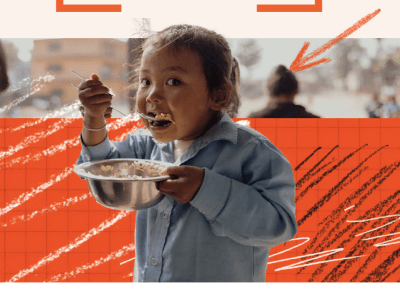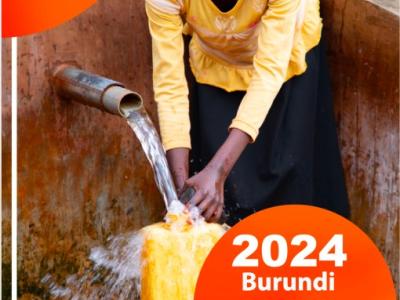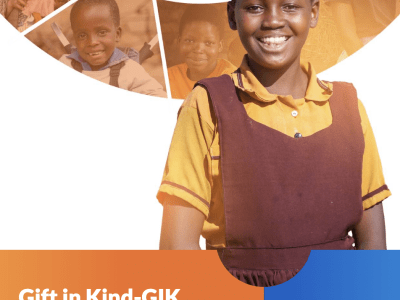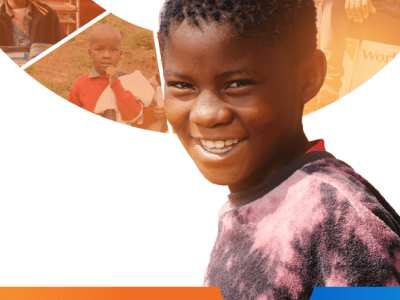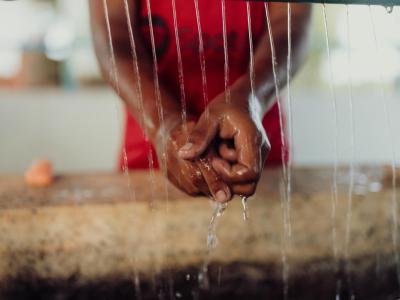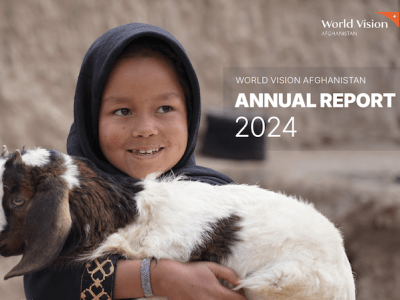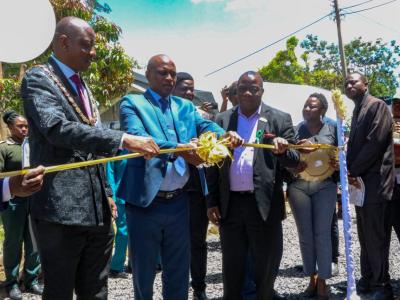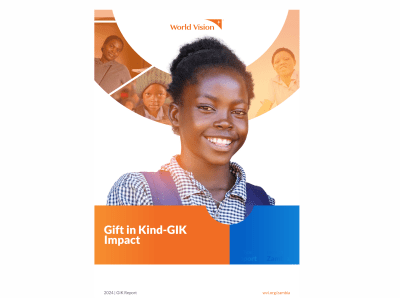publication / April 2, 2025
South Asia and Pacific ENOUGH 2025 Campaign Report
ENOUGH Report: Learn how World Vision fights child hunger in South Asia & Pacific. Discover youth-led solutions & our impact on nutrition policy.
publication / April 22, 2025
World Vision Burundi Impact Report 2024
It is with immense pleasure that we present to you our Impact Report for 2024 which covers our work and impact from October 1st, 2023, to September 30th, 2024. Throughout the report, we highlight stories of people who have been positively impacted by your donations, your hard work and your partnership with World Vision.
publication / April 22, 2025
World Vision Malawi Gifts In Kind (GIK) 2024 Impact Report
Gifts In Kind Impact Report for World Vision Malawi
publication / April 22, 2025
World Vision Eswatini Gift in Kind (GIK) 2024 Impact Report
In FY24, World Vision Eswatini integrated over $2.3M in Gifts in Kind (GIK) resources—such as school furniture, medical supplies, and bicycles—into key programmes, boosting child well-being, health, education, and community resilience across vulnerable communities.
press release / April 4, 2025
Banteay Meanchey achieves Open Defecation Free status, transforming public health
A child is washing her hands at a handwashing station.
publication / April 24, 2025
Hope in Action: World Vision Afghanistan Annual Report | FY24
FY 24 Impact: World Vision Afghanistan worked across 34 districts and more than 3,200 villages across Herat, Badghis, Ghor, Faryab, and Nangahar provinces, delivering critical assistance to over 1.2 million people, nearly half of them children. Read the full report.
article / March 14, 2025
A New Era in Public Health Emergency Preparedness and Response in Zimbabwe
Zimbabwe has taken a significant step forward in public health emergency preparedness with the official handover of eight state-of-the-art Public Health Emergency Operations Centres (PHEOCs) by World Vision Zimbabwe to the Ministry of Health and Child Care (MoHCC).
publication / April 22, 2025
World Vision Lesotho Gift-In-Kind (GIK) Impact Report FY24
Lives of children, families, and communities across Lesotho transformed through Gift-in-Kind impact boosting education, health, and child protection.
publication / April 22, 2025
Gift-In-Kinds 2024 Annual Report
In the 2024 financial year, World Vision Zambia achieved remarkable progress in improving the well-being of vulnerable children and communities by strategically integrating Gifts In Kind (GIK) across key sectors. Through the distribution of essential items, including school furniture, medical supplies, bicycles, re-milled soap, clothing, and toys, the organisation has significantly enhanced education, health, hygiene, and mobility, while fostering resilience and long-term development across communities.
